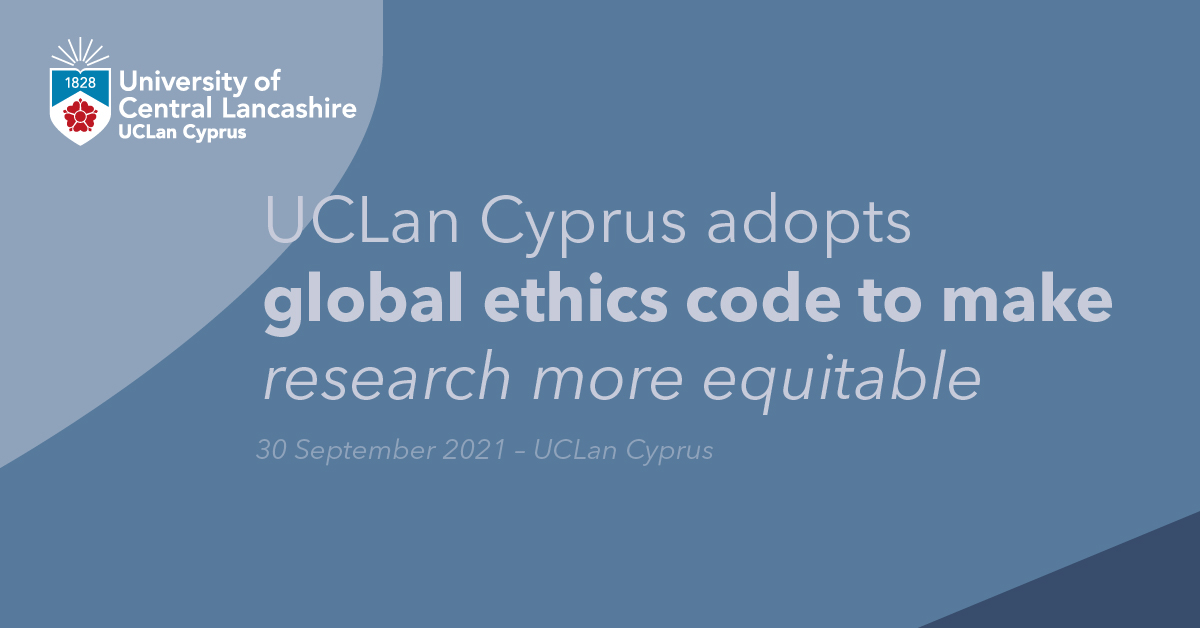The University is committed to enhancing theoretical knowledge and skills through applied research for the benefit of society, economy and industry. To that end, UCLan Cyprus has established research areas that engage with local and international academic, business, and professional communities and industries.
Academics and researchers at UCLan Cyprus are members of the UCLan research community through its Research Centres, Research Institutes and other Research Groups.
The University of Central Lancashire Cyprus (UCLan Cyprus) now a member of the Sustainable Development Solutions Network (SDSN)
Since 2021, UCLan Cyprus is a member of the The UN Sustainable Development Solutions Network (SDSN), the world’s leading knowledge network for the UN Sustainable Development Goals (SDGs). The SDSN is an international network which mobilizes global scientific and technological expertise to promote practical problem solving for sustainable development and has operated under the auspices of the UN Secretary-General and leadership of Professor Jeffrey Sachs, since 2012. The network spans six continents and draws upon the knowledge and educational capacity of over 1,200 member institutions which work together to achieving the UN SDGs and the Paris Climate Agreement. By working closely with UN agencies, multilateral financing institutions, the private sector, and civil society, the SDSN aims to accelerate joint learning and promote integrated approaches that address the interconnected economic, social, and environmental challenges confronting the world.
UCLan Cyprus, by joining the global SDSN, also joined SDSN Cyprus which works with all sectors of society to improve the country’s performance in implementing the SDGs, collecting and disseminating best practices, raising awareness, promoting sustainable development education, engaging with youth, and assisting the authorities, the private sector and civil society organisations in mainstreaming the SDGs into their daily operations.
As an SDSN Member, UCLan Cyprus is now connected to the growing global SDSN community. Membership benefits include participation in National and Regional SDSNs, engagement with SDSN’s Thematic Networks, joint fundraising localising the 2030 Agenda. UCLan Cyprus is fully committed to education and research for Sustainable Development through the mutual exchange and sharing of education curriculum and applied research outputs including through the SDG Academy, education and research programmes. UCLan Cyprus is also happy to belong to a growing collaborative network contributing to a stronger voice and visibility globally around the SDGs. In line with the SDSN’s Code of Conduct and Ethics, UCLan Cyprus is looking forward to getting involved and supporting global Solution Initiatives.
For more information, please contact the Chair of Research and Innovation of UCLan Cyprus, Prof. Stéphanie Laulhé Shaelou at [email protected] or 24694008
UCLan Cyprus adopts global ethics code to make research more equitable

UCLan Cyprus has adopted the Global Code of Conduct for Research in Resource-Poor Settings (GCC). The GCC aims to address “ethics dumping”, which refers to practices that would be ethically unacceptable in high-income settings but that are used in low- and middle-income countries, where strong legal frameworks and ethics compliance mechanisms may be lacking.
The GCC has been developed in the context of the project TRUST, a pluralistic project which aimed to foster adherence to high ethical standards in research globally, and to counteract the application of double standards in research (‘ethics dumping’). The code, which is directed at all research disciplines, requires close collaboration between partners from both high-income and middle-lower income settings, from the planning stage, through research dissemination to evaluation. The lead author of the GCC is a UCLan and UCLan Cyprus Academic, Professor Doris Schroeder.
By adopting the code, UCLan Cyprus joins a number of high-profile adopters including the European Commission, the European and Developing Countries Clinical Trials Partnership, the University of Cape Town, the Dutch National Research Council and the University of Central Lancashire, and the University of the Witwatersrand, Johannesburg (Wits).




